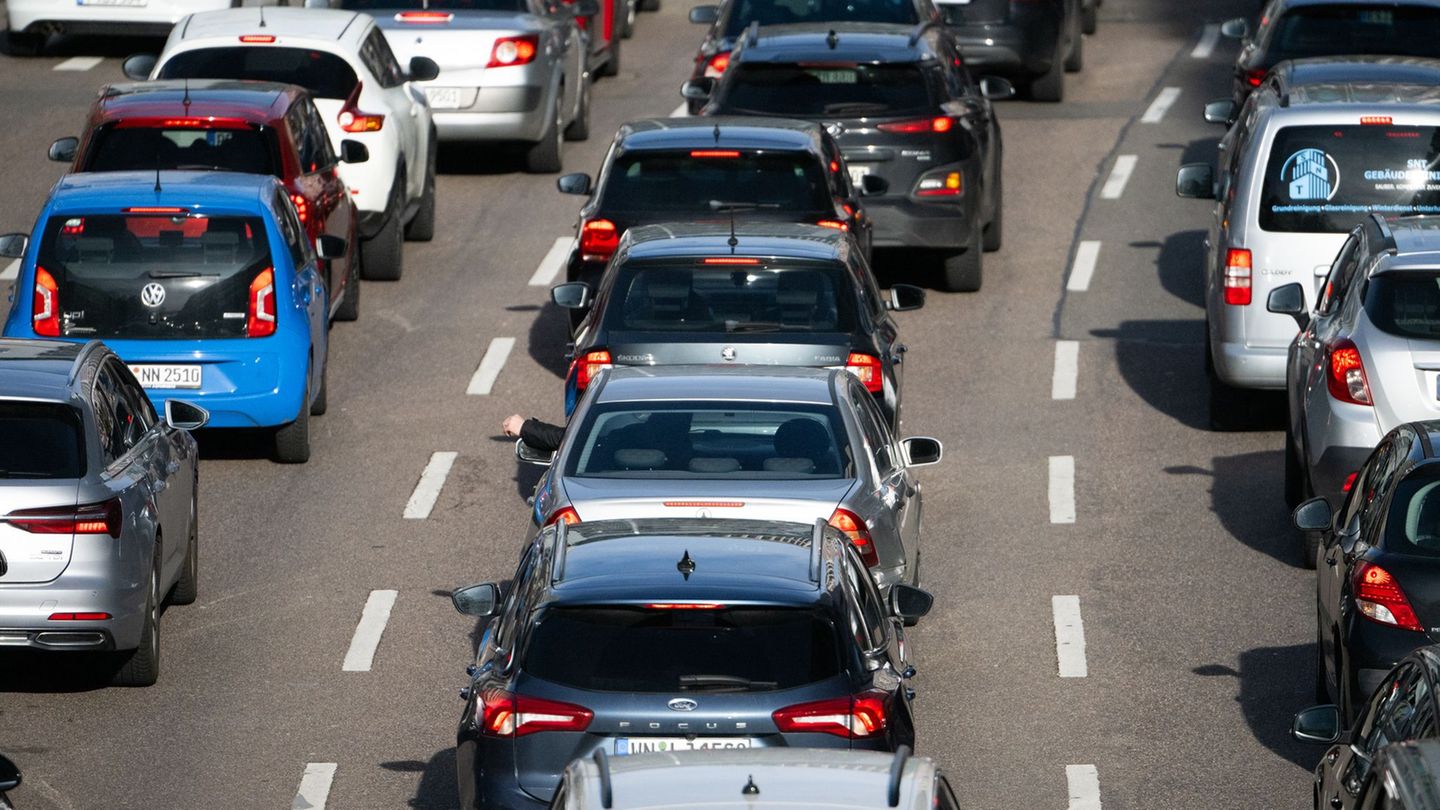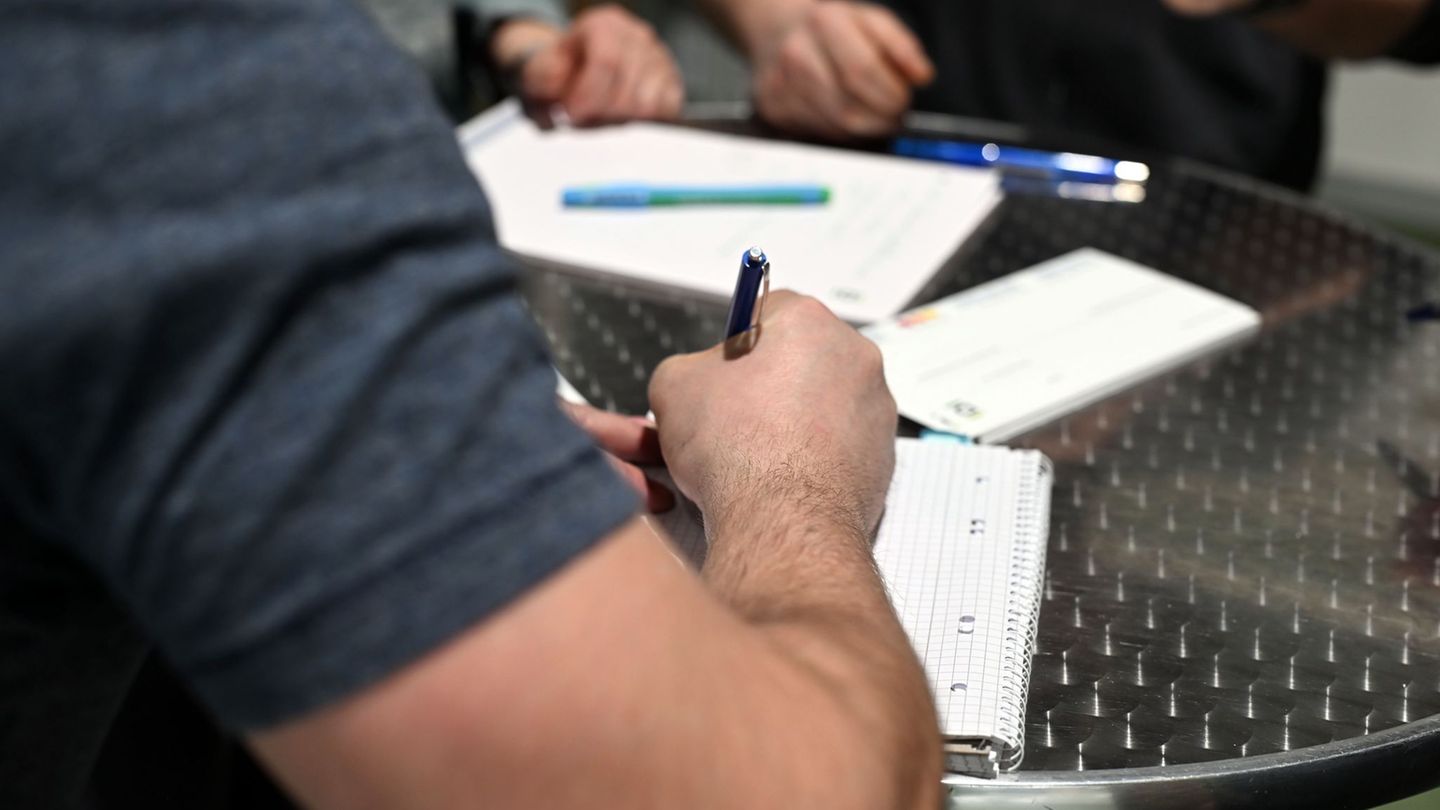The knife attack in Solingen has heated up the debate about deportation rules. The parties are outdoing each other with their demands. Meanwhile, the Chancellor is expected in Solingen.
After the fatal knife attack in Solingen, calls for tougher deportation rules and stricter gun laws are growing louder. At the same time, there are demands for clarification as to why the authorities failed last year in their attempt to deport the Syrian asylum seeker who was able to carry out the attack that left three people dead on Friday evening. Federal Chancellor Olaf Scholz (SPD) plans to commemorate the victims of the knife attack in Solingen today with NRW Prime Minister Hendrik Wüst (CDU).
At a street festival in the town in the Bergisches Land, eight people were injured, four of them seriously. A 26-year-old Syrian suspect has been in custody since Sunday evening – among other things on suspicion of murder and on the accusation of belonging to the terrorist militia Islamic State (IS). The terrorist militia claimed responsibility for the attack and released a video on Sunday that is said to show the perpetrator. It is not yet clear when the video was recorded and whether it is actually the perpetrator.
Suspect from Solingen should be deported
As “Spiegel” reported, the suspect came to Germany at the end of 2022 and applied for asylum. The security authorities had not previously known him as an Islamist extremist. This information was confirmed to the German Press Agency. The suspect’s asylum application was rejected. He was therefore due to be deported to Bulgaria last year. He had entered the European Union via the country. However, since he had since disappeared in Germany, the deportation was no longer necessary for the time being, wrote “Welt”.
NRW Interior Minister Herbert Reul (CDU) said on the ARD program “Caren Miosga” that the suspected assassin had not gone into hiding in the legal sense. He was simply not there on the day he was supposed to be picked up. “Otherwise, he was always and often in this facility.” He also asked himself many questions about whether these procedures are correct, sufficient, or excessive, said Reul.
North Rhine-Westphalia’s Prime Minister Wüst is also calling for an investigation within the authorities. “There are a lot of questions. A lot of authorities are involved. This needs to be clarified and we need to speak plainly if something has gone wrong,” he said in the “Aktuelle Stunde” on WDR television. In the ZDF “heute journal”, Wüst said: “If something has gone wrong somewhere, at any authority, whether locally in Bielefeld, in Paderborn or at state or federal authorities, then the truth needs to be put on the table.”
According to an overview by the Federal Office for the Protection of the Constitution, the attack in Solingen would be the most serious attack in Germany committed with suspected Islamist motives since the attack on a Christmas market in Berlin in December 2016, which left 13 dead and 64 injured.
Merz: Stop accepting refugees from Syria and Afghanistan
One week before the state elections in Saxony and Thuringia, CDU leader Friedrich Merz toughened his tone towards Chancellor Olaf Scholz (SPD) and called for a freeze on the admission of refugees from Syria and Afghanistan to Germany. In his email newsletter “MerzMail” he wrote: “After the terrorist attack in Solingen, it should now be clear: it is not the knives that are the problem, but the people who carry them around. In the majority of cases, these are refugees, and in the majority of the attacks, there are Islamist motives behind them.”
In the ARD Brennpunkt, Merz said: “If Solingen is not the turning point for the coalition, then I don’t know what else has to happen for some people here to finally come to their senses.”
Union parliamentary group vice-chairman Jens Spahn (CDU) spoke out in favor of closing borders to stop irregular migration. He told the “Rheinische Post” (Monday): “For years, hundreds of young men from Syria and Afghanistan have been coming to Germany and Europe every day. This must finally end.”
Chancellor Scholz had already announced in June, after the deadly knife attack in Mannheim, that the deportation of serious criminals and terrorist threats to Afghanistan and Syria would again be possible.
SPD leader Esken: Admission freeze not compatible with laws
SPD leader Saskia Esken rejected Merz’s call for a freeze on admissions, as such a step “is not compatible with our laws, not with the European Refugee Convention, not with our constitution.” However, serious criminals and Islamist threats must be able to be deported to these countries.
Bavaria’s Prime Minister Markus Söder (CSU) said on ARD that criminals must be arrested immediately and leave the country, especially to Syria and Afghanistan. The police must be given more opportunities for checks.
Federal President Frank-Walter Steinmeier also spoke about expanding the powers of the security authorities. Better protection against attacks “also includes equipping the security authorities with the necessary powers,” he said in a summer interview with ZDF. Steinmeier called for more staff for the security authorities. However, if there is a terrorist threat, an expansion of the powers of the Federal Criminal Police Office, for example, is also conceivable.
Buschmann announces negotiations on gun laws for knives
Federal Justice Minister Marco Buschmann announced negotiations on the gun law for knives. “We will now discuss in the federal government how we can further advance the fight against this type of knife crime,” the FDP politician told “Bild am Sonntag”. So far, the FDP has rejected proposals from Federal Interior Minister Nancy Faeser (SPD) for stricter rules and bans.
Source: Stern
I have been working in the news industry for over 6 years, first as a reporter and now as an editor. I have covered politics extensively, and my work has appeared in major newspapers and online news outlets around the world. In addition to my writing, I also contribute regularly to 24 Hours World.




